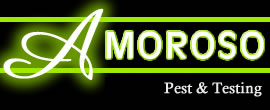Connecticut Licensed Pest Inspections
 Licensed CT Termite Inspection professionals provide you with the certified inspection report you need on the proper form:
Licensed CT Termite Inspection professionals provide you with the certified inspection report you need on the proper form:
- FHA Mortgages
- VA Mortgages
- Conventional Mortgages
- First Time Home Buyer Mortgages
- Mortgages Re-Finances
- Insurance Inspections
"Do I really need a pest inspection?" It's a question home buyers often ask. A lot of the time they cost additional money and can uncover costly problems. But the reality is that what little you spend on an inspection could end up saving you a lot of money in the long run. Finding and treating termites or carpenter ants quickly could be the difference between a couple-hundred bucks and rebuilding an entire house.
We conduct thorough inspections and issue certifications promptly for any type of mortgage. Our inspectors will inform you of the presence of any wood destroying insects and point you in the right direction for remediation and treatment.
We maintain an extensive clientele of loyal real estate agents, lenders, and attorneys who have consistently relied upon us for speedy and professional results. We understand time is of the essence for you when you are in the middle of a real estate transaction.
Call today to schedule your appointment 888-558-1574.



